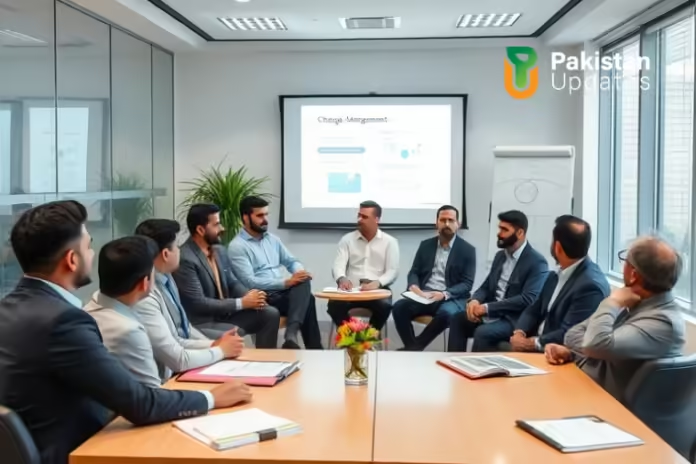It was a pleasure attending the webinar named “Professional Approach towards Change Management” organized by ICAP. The distinguished speakers were articulate in highlighting critical areas of Change Management, methods, and measures required to embrace change in an organization. The emphasis on the role of psychological advancements to help management persuade employees to embrace change was particularly vital.
In my opinion, change is never welcomed in a persistent flow of the system. The employees feel comfortable with their habitual flow of work, regardless, of whether the flow of the system is effective or ineffective for their own good.
It’s not that people are reluctant to make improvements in their daily work and lifestyle but actually, it’s the mindset connected to a fixed and patterned existing system that acts as a barrier to change. For instance, change management is not just about learning new processes but it is also about “unlearning” the old processes and then replacing them with the new ones. Hence, generally, people are not accustomed to unlearning first and then learning and focusing on the areas of change.
We must first understand the existing system and the level of acquaintance OR attachment of the employees with the existing system. This thorough learning would help us to craft a change strategy that would help the employees accept the change “gradually” while they are still very much connected to the existing system. Therefore, the change management strategy should be divided into multiple phases and each phase should be implemented in periodic intervals ensuring smooth acceptance and execution. Furthermore, change should be named in a manner that appears to be facilitation rather than felt as a redundancy OR assignment. For that matter, names like Automation of Work OR Decentralization of Power give a positive vibe.
On the other hand, a plan of action to implement change should be discussed in advance with all affected employees at each level by their respective job roles. Since we are advocating change, then we should also be open to employees’ diverse feedback. In this way, employees will be “inclusive” in all phases of change implementation and they will feel the ownership of the entire plan. Their motivation level would skyrocket even prior to the phases being actually kicked off.
Last but not least, organizations developing a “culture of change” should celebrate it as an event, and a lucrative “reward system” should be integrated so that instant gratification is felt among all employees.
For more insights and news subscribe to Pakistan Updates.




